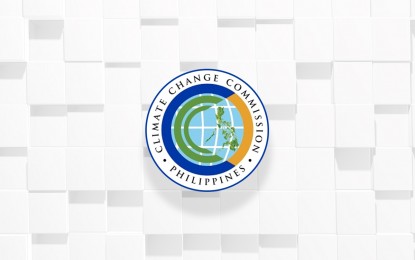
MANILA – The Philippines will pursue developed countries' support for conditional greenhouse gas (GHG) emission reduction and avoidance which the country set in its first official Nationally Determined Contributions (NDC) and aims to meet by 2030.
NDC are measures each party to Paris Agreement on climate change commits to help meet this legally binding international treaty's goal.
Climate Change Commission vice chairperson Secretary Emmanuel de Guzman noted the government will seek to work out, through the international negotiation platform of UN Framework Convention on Climate Change (UNFCCC), arrangements for such support.
"That support can be provided through various means like multilateral and bilateral," he said Thursday during the pre-State of the Nation Address (SONA) "Pamana ng Pagbabago" virtual presser featuring the government's climate change adaptation, mitigation and disaster risk reduction cluster.
The official NDC pledges a total 75 percent reduction in and avoidance of GHG emissions nationwide by 2030, through various measures in the agriculture, waste, industry, transport and energy sectors, so the country can help mitigate climate change.
Of such total target, 72.29 percent is conditional or dependent on funding, technical assistance and capacity development which developed countries will provide.
The government will use domestic resources to implement measures for meeting the target's remaining 2.71 percent unconditional commitments, noted de Guzman.
"That means government already has existing programs and funding that could implement such commitments," he said.
Adopted in December 2015, Paris Agreement aims to strengthen the global response to climate change by promoting countries' limitation of respective GHG emissions and adaptation to impacts of the changing climate.
In April this year, the Philippines submitted its NDC to the Secretariat of UNFCCC which is the intergovernmental treaty that seeks to address the climate change problem.
Pursuing developed countries' support for such NDC is in line with the climate justice principle Paris Agreement is promoting since developed countries, not developing nations like the Philippines, account for the bulk of GHG emissions that are driving climate change.
"Under Paris Agreement, developed countries have the obligation to help us transition to a green economy and adapt to climate change because we're among the most vulnerable to this," de Guzman said.
Flooding and other impacts of extreme weather events in the country highlight urgency for such foreign support, he noted.
Onslaught of extreme weather events, as well as sea level and temperature rise, are climate change's impacts on the Philippines even if the country accounts for less than 1.0 percent of global GHG emissions, said experts.
They said GHG emissions accumulate in the atmosphere and trap heat so global temperature rises, changing the climate.
Earlier, Department of Finance Assistant Secretary Paola Alvarez said the Philippines will make its pitch for climate justice during this year's Conference of the Parties (COP) to UNFCCC.
"We'll ask developed countries to help us fund our initiatives for us to adapt to the changing climate," she said this June during the virtual Sulong Pilipinas climate change conference for the youth.
UK already announced hosting the COP this November in Glasgow.
Alvarez said climate change is already threatening the Philippines so there's a need for the country to adapt accordingly.
The changing climate "has a lot of devastating effects on our country especially in terms of our economy," she noted.
She said in the long run, the Philippines is expected to annually incur some PHP177 billion in terms of losses to public and private assets due to typhoons and earthquakes alone. (PNA)
